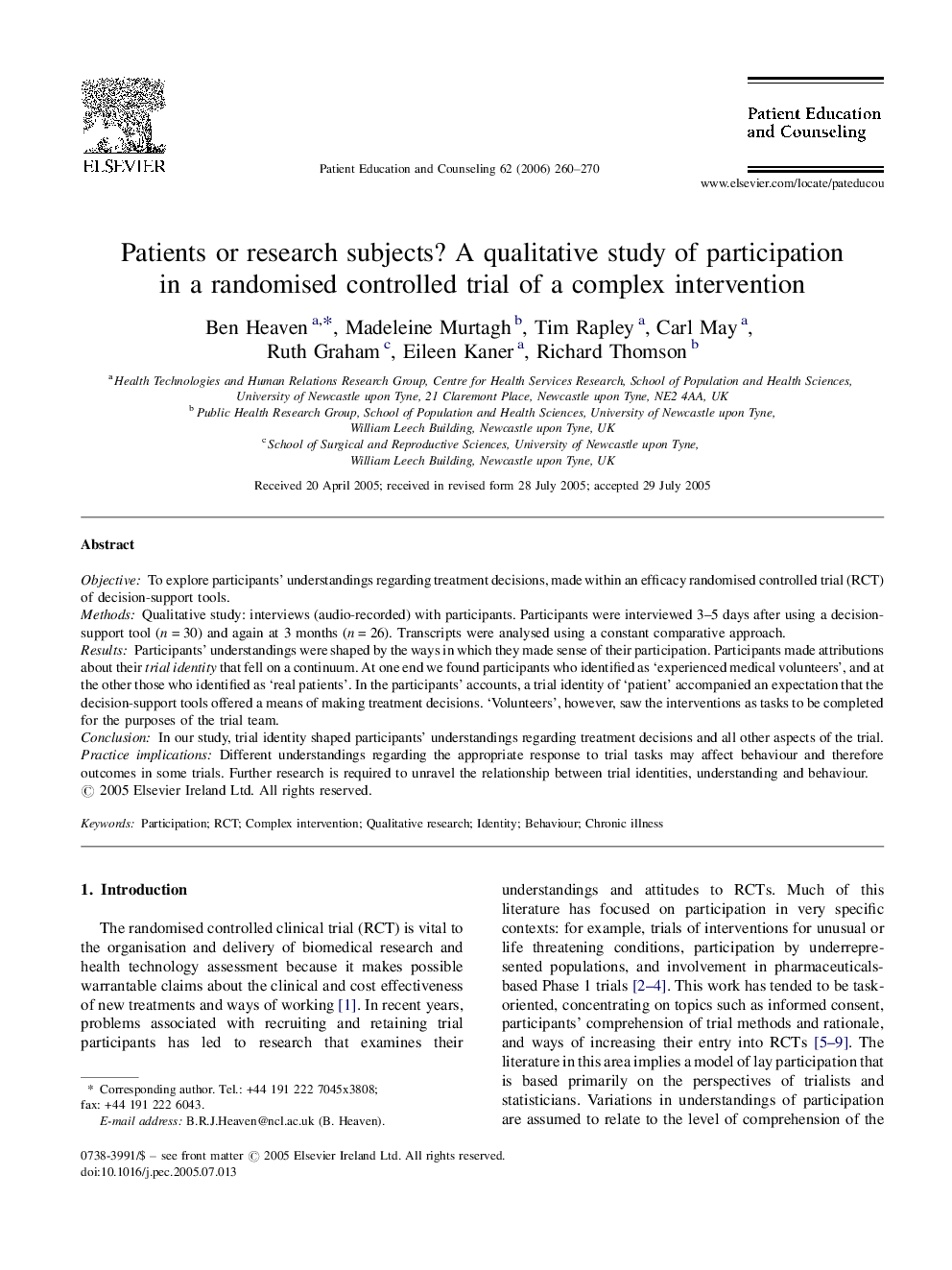| Article ID | Journal | Published Year | Pages | File Type |
|---|---|---|---|---|
| 3814621 | Patient Education and Counseling | 2006 | 11 Pages |
ObjectiveTo explore participants’ understandings regarding treatment decisions, made within an efficacy randomised controlled trial (RCT) of decision-support tools.MethodsQualitative study: interviews (audio-recorded) with participants. Participants were interviewed 3–5 days after using a decision-support tool (n = 30) and again at 3 months (n = 26). Transcripts were analysed using a constant comparative approach.ResultsParticipants’ understandings were shaped by the ways in which they made sense of their participation. Participants made attributions about their trial identity that fell on a continuum. At one end we found participants who identified as ‘experienced medical volunteers’, and at the other those who identified as ‘real patients’. In the participants’ accounts, a trial identity of ‘patient’ accompanied an expectation that the decision-support tools offered a means of making treatment decisions. ‘Volunteers’, however, saw the interventions as tasks to be completed for the purposes of the trial team.ConclusionIn our study, trial identity shaped participants’ understandings regarding treatment decisions and all other aspects of the trial.Practice implicationsDifferent understandings regarding the appropriate response to trial tasks may affect behaviour and therefore outcomes in some trials. Further research is required to unravel the relationship between trial identities, understanding and behaviour.
